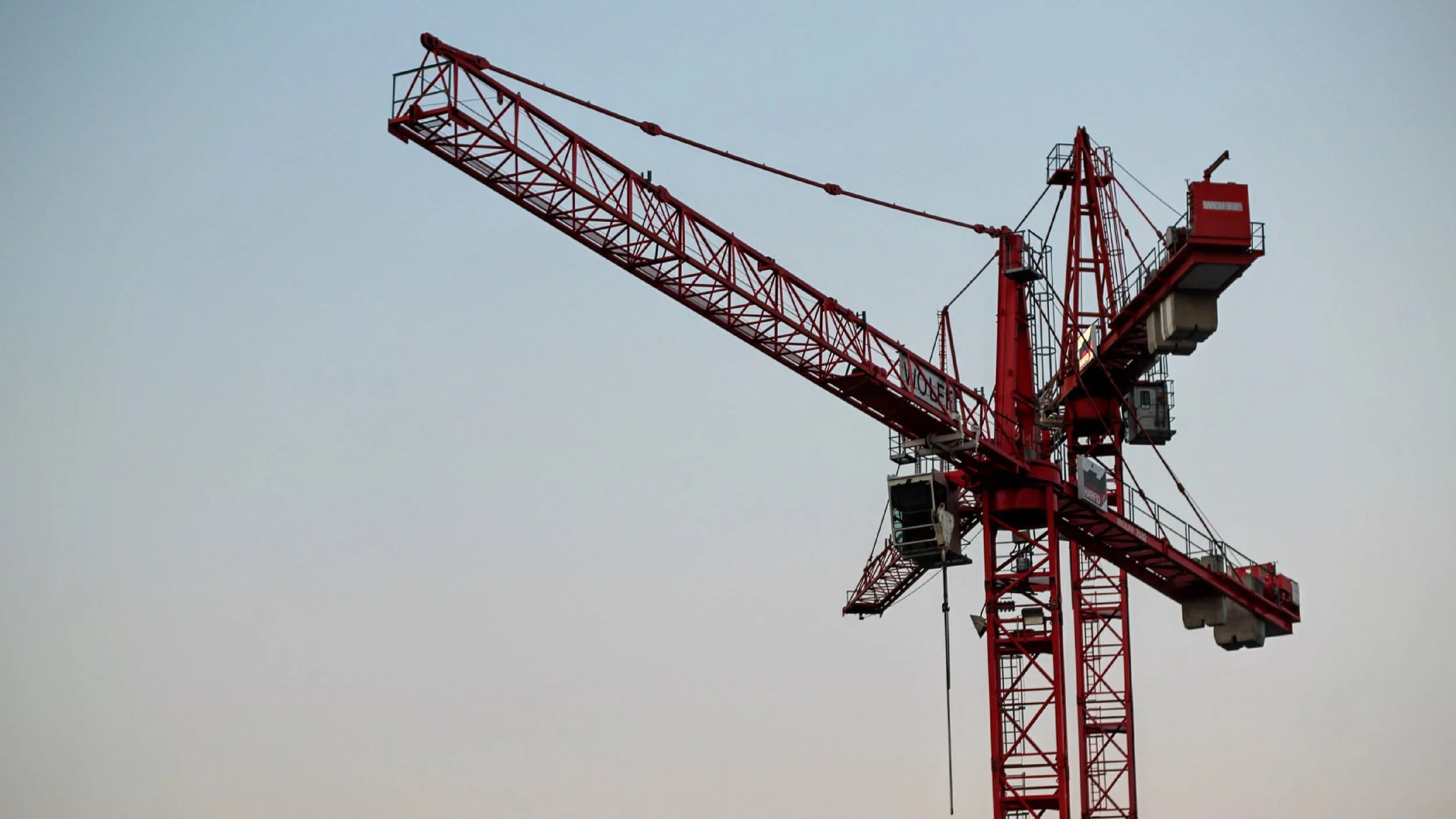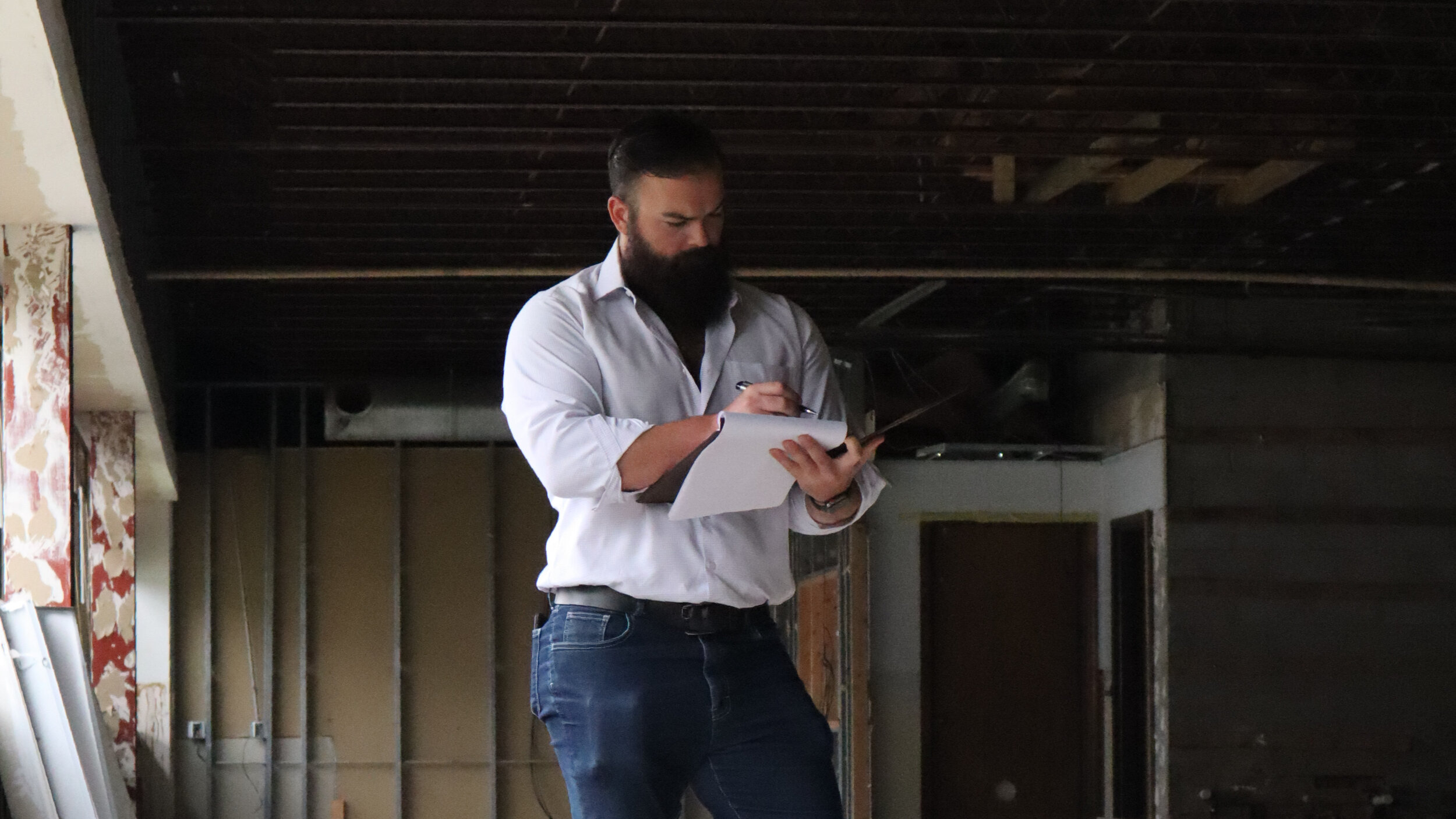Commercial Real Estate Development for Beginners
Just about all commercial real estate investors aim to take a property and add value to it in some way in order to increase the overall cash flow or valuation.
Most will take existing sites with either deferred maintenance, high vacancy, or a combination of both - but some investors will actually take raw land and reimagine what could be on that site.
Here’s our guide to commercial real estate development for beginners.
What Is Commercial Real Estate Development?
Commercial real estate development is a process by which a developer takes a raw piece of land or sometimes an existing structure and reimagines what that site could become.
The project could fall within any type of real estate:
Office
Retail
Industrial
Multifamily
Single-Family
You Name It
These investors are often taking on the heaviest amount of risk in the world of commercial real estate since they’re usually buying properties that aren’t income producing and the projects could take years to pull together.
However, with high risk comes high reward, and commercial real estate developers have the highest potential for big payouts in the investment realm.
These developments could also be done by the developer for their own benefit or third-party, with the intent to lease out all of the units or simply sell them, or for a long-term hold strategy or quick stabilize and flip.
The beauty of commercial real estate development is that there are so many different avenues and directions you could take.
What Does a Commercial Developer Do?
I like to compare developers to the conductor of an orchestra.
While they may not necessarily be playing any instrument themselves, they are coordinating all of the various moving pieces and making sure everyone stays on time.
Commercial real estate developers have a number of responsibilities on their plates:
Site selection and evaluation
Contract negotiations
Zoning and entitlements
Architectural and engineering studies
Placing the full capital stack
Bidding out and overseeing the construction
Coordinating the leasing / sales team
And so much more
Let’s dive into each of those a bit more.
The Commercial Real Estate Development Process
There are many steps to the commercial development process, which can often take years to complete from start to finish.
Site Selection & Evaluation
The developer is responsible for finding the site that they plan to develop, whether they source it on their own or have a third-party, such as a commercial real estate broker, source the site for them.
Most developers have a product type that they know inside and out, so they can quickly determine whether or not a site will work for their intended use.
During site selection and evaluation, developers will check:
Traffic counts
Site topography
Proximity to major landmarks and interstates
Ease of access
Local infrastructure
Demand for their product type
Zoning and land usage
And more
If the site passes this initial sniff-test, then you’re good to move into the next stage.
Contract Negotiations
This step in the process is fairly straightforward - the developer makes an offer on the property and opens up negotiations for a purchase and sale agreement.
At this stage, many pros will bring in their attorneys to handle a fair amount of the work, considering how much time, energy, and capital is going to be on the line. I highly recommend that you hire the right professionals to represent you throughout the process to keep you protected.
Zoning and Entitlements
This piece of the puzzle is often where seasoned developers can outshine their competitors and really earn their pay.
Properties must have the correct zoning for your intended use or you simply won’t be able to develop that project. In this case, you’ll need to rezone or re-entitle the site.
This process will often include neighborhood meetings, discussions with your councilmember (or local representative), and city approval.
During the zoning and entitlement process, you may need to engage a civil engineer, landscape architect, architect, or any number of other trades that could help put together a better presentation and visual for whomever needs to sign off on the rezoning.
Architectural and Engineering Studies
Some developers may have a background in architecture and engineering but they’ll still hire the appropriate firms to help bring their vision to reality.
Your architecture and engineering firms will perform site studies in order to determine how to potentially maximize the site and they’re often strong lobbyists, too, if you need to get any variances on your project since they’ll typically have good relationships with the approving parties and the city.
Placing the Full Capital Stack
The capital stack is the debt and equity structure for a commercial real estate development.
There are many ways that this stack can be pulled together, depending on the type of project and the developer’s appetite for (or access to) equity partners.
Some developers are capitalized internally, meaning they will place the equity portion on their own, but other groups have a number of investors from whom they’ll source this capital.
A full capital stack could include:
Equity
Preferred Equity
Bridge or Mezz Debt
Bank Debt
Bidding Out and Overseeing Construction
Once the developer has finalized plans with the architect, engineer, and leasing or sales team, it’s time to send those plans out to general contractors to explore the feasibility of moving forward on the project.
Now, seasoned developers will have an idea of the costs associated with their development prior to these bids but there are always fluctuations in construction labor and material costs that could severely impact the overall project costs.
These bids are used for loan approval and serve as a budget by which the developer will hold a general contractor accountable during the construction process.
Coordinating the Leasing and Sales Team
The leasing or sales team is often involved early on in the design process with the developer to ensure the project is marketable.
After the project is designed and approved, the developer will work with the leasing or sales team to market the site to the ideal customers in order to hopefully get some pre-leasing or pre-sale activity.
This part of the process could include digital marketing, PR, hard-hat tours while the project is underway, site tours after completion, and contract negotiations.
How to Get Into Commercial Real Estate Development
If you’re interested in diving into commercial real estate development, the best way to learn is from another developer that’s already where you want to be.
Could you skip that step and dive right on into development for yourself?
Sure, but with how specialized this knowledge is and with the few amount of resources out there available to teach you, you’re likely to make a mistake and cost yourself (or your investors) quite a bit of money.
You could apply to work with a developer as an analyst, project manager, or as their assistant, each of which will give you a solid understanding of the development process and how to develop commercial property in your area.
Read Next:
About The Author:
Tyler Cauble, Founder & President of The Cauble Group, is a commercial real estate broker and investor based in East Nashville. He’s the best selling author of Open for Business: The Insider’s Guide to Leasing Commercial Real Estate and has focused his career on serving commercial real estate investors as a board member for the Real Estate Investors of Nashville.





















In 2008, the city of Chicago sold off the rights to 36,000 parking meters for $1.15 billion. At the time, officials praised it as a financial lifeline—a way to plug a massive budget deficit without raising property taxes. But by 2025, the investors behind that deal had already earned back every dollar… plus $500 million in profit. And the kicker? They still had 60 years left on the contract.
Chicago didn’t just lose out—it got absolutely fleeced.
This wasn’t a one-off oversight. It was a glaring case of what happens when institutional leaders misunderstand the quiet power of boring real estate. Because what looked like an outdated relic—coin-operated meters on slabs of city asphalt—turned out to be one of the most lucrative investments in modern American history.
But this story isn’t really about Chicago. It’s about the invisible empire that grew underneath America’s cities—parking lots, storage yards, fenced land—and the people who saw their value long before Wall Street did.
The investors who win in commercial real estate aren’t always the ones chasing the flashiest properties. They’re often the ones who ask the simplest question: “Can I charge rent on that?”
This is the story of how surplus land and painted asphalt built billion-dollar fortunes—and how the exact same principle is quietly shaping the next wave of wealth in commercial real estate.